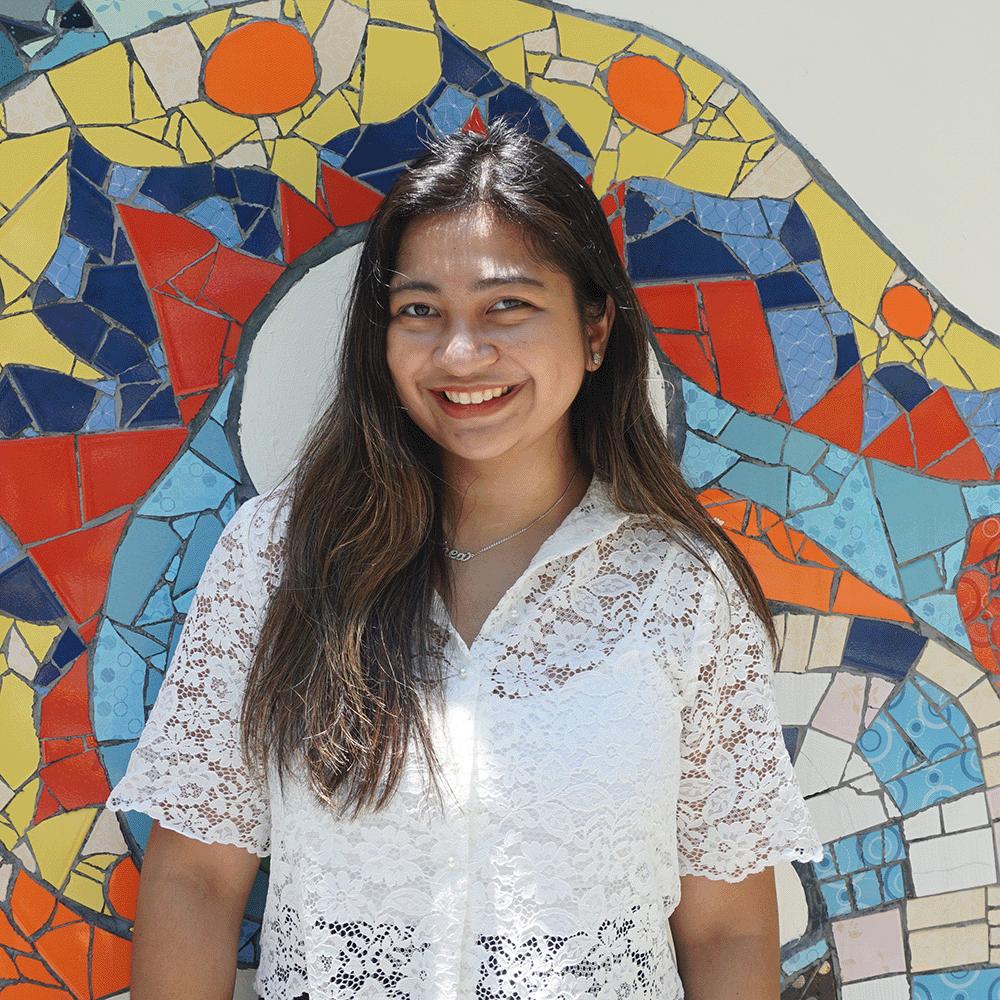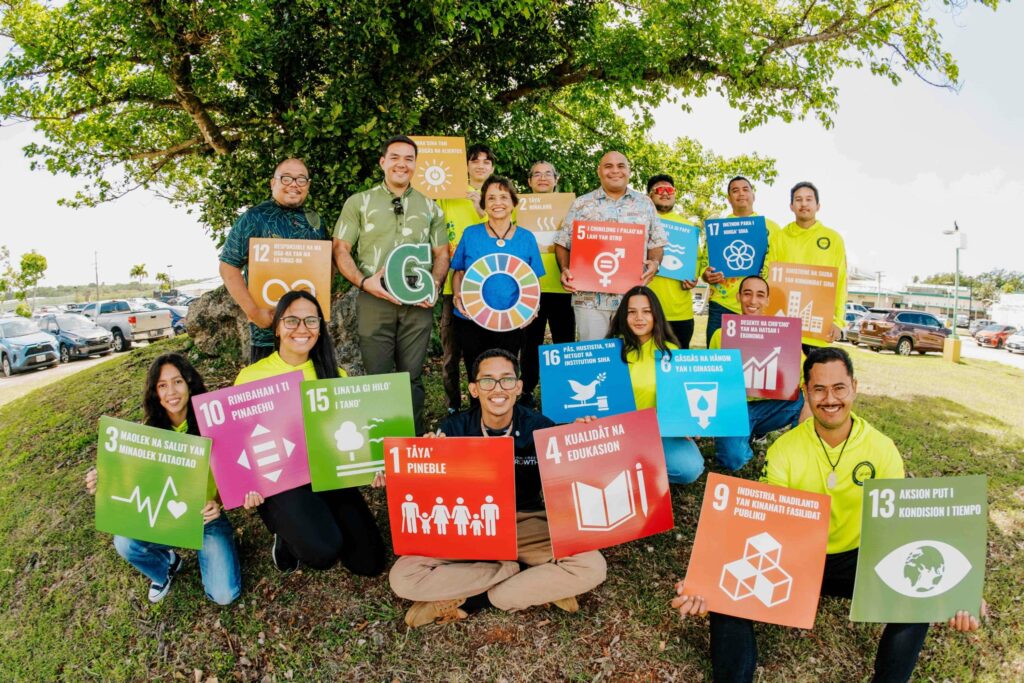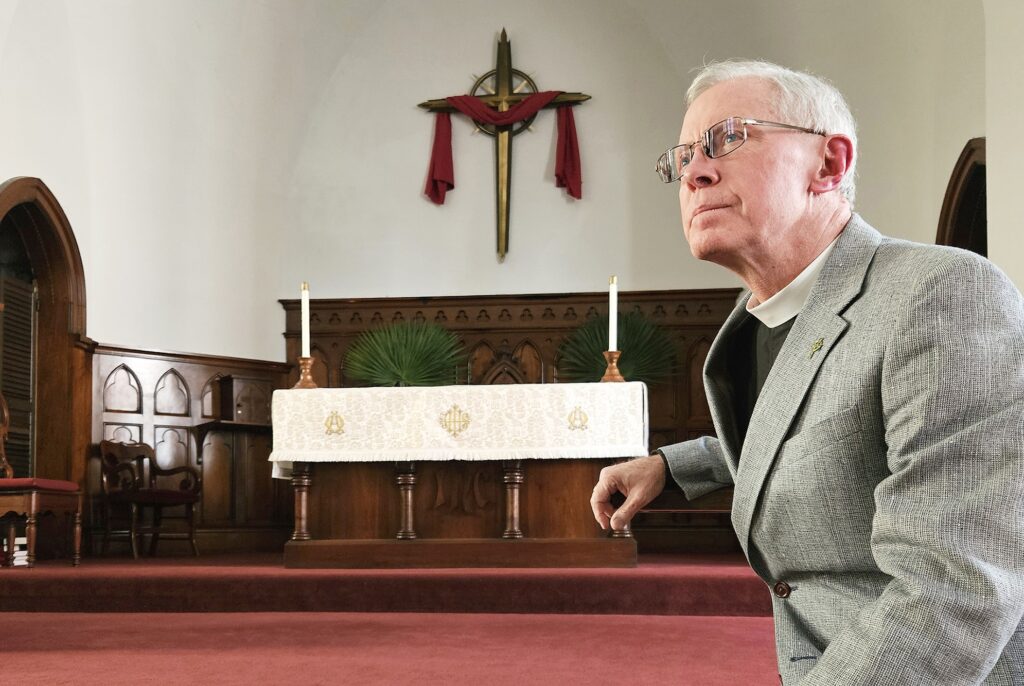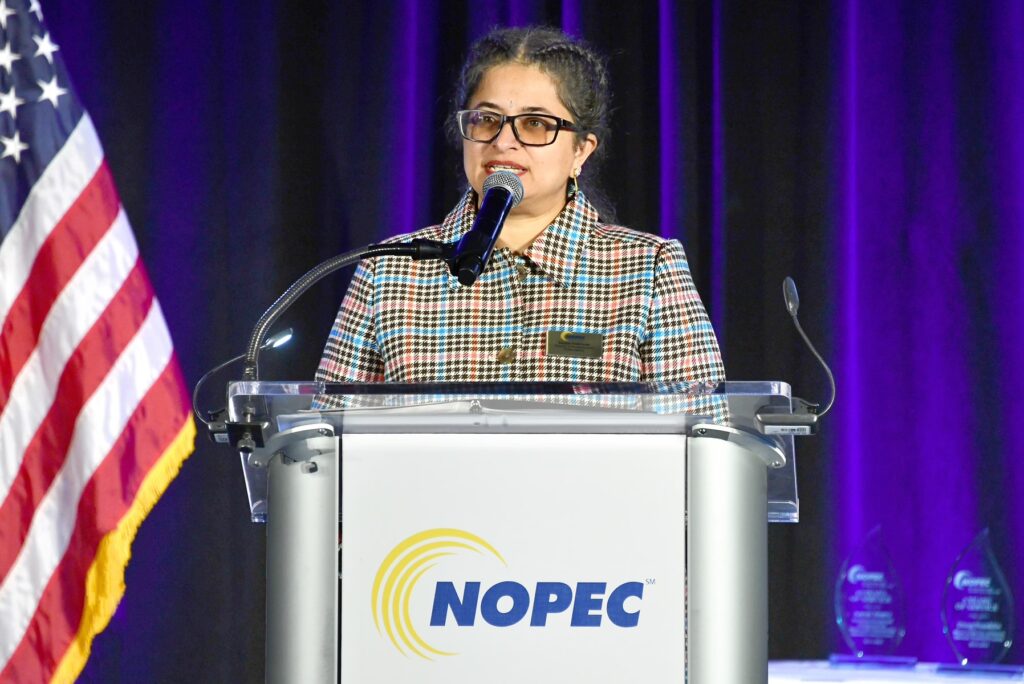Thanks to a collaborative effort between the mayor’s office, former Mayor Eric Garcetti, and The Conrad N. Hilton Foundation, Los Angeles developed partnerships with other global cities to share knowledge and best practices for SDG implementation. Local PhD student Gaea Morales was so inspired by the initiative that she chose to study its model. Gaea is completing her doctorate degree in Political Science and International Relations at the University of Southern California. Among her mentors are Erin Bromaghim, Anthony Chase, Dawn M. Comer, Sofia Gruskin, Jeanne Holm, and Angela Kim, who have been pivotal to driving SDG efforts across the city. “They really inspired me to understand what local governments are actually doing in terms of these really abstract, big lofty ideals.”
Against the backdrop SDG 13: Climate Action, “my dissertation is about understanding how local governments translate and implement these goals.” Gaea is focusing on developing case studies in Southeast Asia partially because of her connection to the Philippines, where she was born. “It’s been my hope to contribute research on this region, which is simultaneously one of the most climate vulnerable in the world. But also somehow the least represented, not only in international forums but also by extension in the scholarship,” she says.
Her current research dives into how global climate governance across Bangkok, Metro Manila, and Jakarta is leading by example. Quezon City, the largest city in Metro Manila, has already localized air quality monitoring and is working on implementing solar energy in public buildings. Because the city declared a climate emergency it “allowed them to mobilize resources in ways that they wouldn’t have,” explains Gaea.
Prior to working at the Los Angeles Mayor’s Office of International Affairs, Gaea worked at the United Nations Development Programme (UNDP) Philippines and United Nations Institute for Training and Research (UNITAR) New York. With these experiences, she’s come to better understand how the Goals offer “a translation of a lot of the responsibilities that cities already have. So when city governments recognize that it is already a part of their agenda, part of their mandate as leaders, as public servants, then it allows them to bridge the global and the local but also create stronger relationships and pathways for communication and community engagement.”
By Dynahlee Padilla-Vasquez, United Nations Foundation




